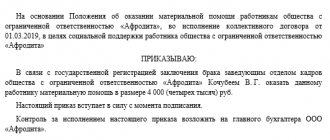From this article you will learn:
- Who is a social worker
- What are the responsibilities of a social worker in aged care?
- Who is entitled to care from a social worker?
- How can you call a social worker at home?
- How much do social worker services cost?
- When can elderly people be denied care from a social worker?
It’s sad to look at an elderly person who no one helps. The closest ones dispersed to cities and towns. Some have no relatives at all. It becomes difficult for old people to perform simple actions: wash the dishes, buy bread, throw out a bag of garbage. The state comes to the aid of such citizens. What are the responsibilities of a social worker in aged care? Where can a pensioner go to receive qualified assistance from a trained service employee? Who is eligible for government support? What could be the reasons for refusal?
Conditions for obtaining the right to a social worker
To get a social worker for a pensioner, you need to prepare a package of documents. These include, among other things, a certificate of income, which will include a pension and other social benefits.
You need to contact your local social security office with personal documents (passport, SNILS, etc.). Prepare a certificate of income for 12 months, a document on disability (if any) and a doctor’s certificate confirming the need for health reasons to receive the services of a social worker.
There will be a survey about the amount of assistance needed, and perhaps specialists will come to your home to assess the scope of work. Afterwards, your application will be reviewed by the commission and a plan (program) of assistance will be drawn up. The law defines a maximum of 10 days for this entire process. Afterwards, the pensioner signs an agreement with the service center for a period of one year. If the contract is not terminated after a year, it will automatically be considered unlimited.
Voluntary assistance to the elderly
Each of us can help the elderly Such actions, first of all, make us better and make us think about our own old age, because each of us may find ourselves in a difficult life situation. Any of us can join a team of volunteers who visit elderly people in nursing homes so that they do not feel lonely and unnecessary to society. Such volunteer work is carried out by the charitable foundations “Old Age in Joy” or “Sofia”.
help the elderly financially through one of the charitable foundations that collect and distribute funds to help the elderly and low-income. One of these funds is “Spring in the Heart”. It is better to transfer small amounts, but regularly. This way, volunteers will be able to plan a budget and meet the priority needs of retirees. If a lonely old woman lives next to you, do not be lazy to contact the territorial centers where they provide services to the poor and help the community learn about the existing problem. It is our indifference that makes the elderly unhappy and unnecessary, at a time when they deserve our respect and support more than others.
Also, those in need can turn to churches and monasteries, where they can find not only lodging for the night, but also receive a hot lunch, which the church ministers treat the poor and homeless. In some cases, such support may be very relevant. The most important thing is to find the problem and ways to solve it, of which there are a great many today.
*Good deeds and helping the elderly are noble deeds that deserve respect. Once they took care of us, participated in wars and built the world in which we live - now it is our time to pay back.
How often should a social worker visit a pensioner?
The social worker will assess the required amount of assistance depending on the physical condition of the ward. Possible help from relatives will be taken into account.
The assistant can come no more than once a day, except on weekends, and he will perform work only according to the approved list, which includes the purchase and delivery of food and essential items, medicines, payment for housing and communal services and communications. If a person has lost the ability to self-care due to illness, a social worker will help prepare food and clean the house. Among other services, there is training in using a computer - this type of assistance is becoming increasingly in demand.
How much does a pensioner pay a social worker?
There are three types of “tariff” for the services of a social worker. Help can either be completely free; those who receive an income of up to one and a half subsistence levels in the region, as well as participants and disabled people of the Second World War, can count on it. The second option is partial payment and the third is full. Payment is regulated by a special price list, in which each service has its own price. Prices differ in the regions, but for example, in the Krasnodar Territory in 2021, a social worker needs to pay 23 rubles 26 kopecks for going grocery shopping, and in the Krasnoyarsk Territory - 44 rubles 76 kopecks. You can find out the tariffs directly from the social security authority; they are required to provide the pensioner with a full price list.
What services can a social worker provide?
Name of service
- Purchase at the expense of the recipient of services and home delivery of food products (hot lunches)
- Purchase at the expense of the recipient of services and home delivery of essential industrial goods
- Delivery of water over a distance (for service recipients living in premises without a centralized water supply)
- Furnace combustion (filling, ignition, ash removal)
- Delivery of fuel from the storage location to the furnace
- Purchase of fuel at the expense of service recipients living in residential premises without central heating
- Delivery of items for washing, dry cleaning, repair and delivery at the expense of the recipient of services
- Providing assistance in paying for housing and utilities (filling out receipts, paying for services at the expense of the recipient of services through credit organizations, housing and communal services organizations, cash settlement centers), the distance from home to the credit organization, housing and communal services organization, cash settlement center
- Assistance in obtaining
- Assistance in the acquisition of goods and services in trade organizations, public utilities, transport, communications and other organizations providing services to the population (filling out an application, assistance in organizing delivery to the place of residence, if necessary, accompanying the recipient of services to these organizations during working hours)
- Assistance in providing books, magazines, newspapers (purchase at the expense of the recipient of services, home delivery, filling out subscription receipts), distance from home to post office, store, library
- Sending at the expense of the recipient of postal services, distance from home to post office
- Assistance in visiting cinemas, theaters, exhibitions and other cultural events (purchase of tickets at the expense of the recipient of services, at the request of the recipient of services, informing about upcoming cultural events, if necessary, during working hours, accompanying the recipient of services when visiting cultural events)
- Assistance in providing medical care to the recipient of services (delivery of tests, accompanying the recipient of services to medical organizations, interaction with the attending physician)
- Assistance in conducting a medical and social examination (accompaniment to the bureau of medical and social examination), distance from home to the Federal Public Institution “Medical and Social Examination”
- Assistance in providing the recipient of services with the conclusion of doctors with medicines and medical products (purchase at the expense of the recipient of services or with a preferential prescription and home delivery, including as part of mobile social service teams)
- Providing assistance in preparing documents for hospitalization of the recipient of services, accompanying the recipient of services to inpatient medical organizations for hospitalization and visiting him in these organizations
- Assistance in maintaining personal hygiene, if necessary, performing sanitary and hygienic procedures (wiping, washing the patient, taking out the bedpan, washing a bedridden patient in the bath completely, washing the hair, softening and trimming nails, haircuts, shaving, removing bed and underwear)
- Assistance in obtaining psychological help (identifying the need for such help and providing accompaniment to a specialist psychologist)
- Providing free hot meals or food sets (delivery)
- Providing clothing, shoes and other essential items (delivery)
What should a social worker do to care for a pensioner?
Each social worker must clearly know his responsibilities to his elderly ward. So, he must:
- Buy and deliver food, non-food products, and medicines to pensioners. One-time delivery rate is no more than 4 kg.
- Cook, heat food, feed the patient if necessary.
- Clean the pensioner’s apartment and, if necessary, help him with repairs.
- Hand over items for washing, dry cleaning, and repairs.
- Pay for utilities (fill out receipts, take meter readings).
- Help write letters, buy newspapers, magazines, subscribe to newspapers.
- Accompany a pensioner to a hospital, clinic, as well as to cultural events: to the theater, to an exhibition, etc.
- Provide psychological support and talk with the pensioner.
- Assist the ward in obtaining a voucher for sanatorium treatment.
- Provide legal services, for example, help a pensioner with paperwork, assist in obtaining benefits, pensions and other payments.
- Monitor the health of an elderly person, provide emergency first aid, perform basic medical procedures: dressings, measuring temperature, pressure, etc.
This is a list of guaranteed services that are provided by social assistance centers to pensioners free of charge.
If an elderly person needs help not included in this list (for example, a walk with a pensioner in the park, on a bench, going to a store for clothes, etc.), then the elderly person will have to pay the social worker, according to an agreement concluded with the organization in which that one works.
Each social worker is required to keep a special journal in which he enters all purchases, as well as services performed for the ward. He must keep all checks and receipts.
This journal is subject to verification every month by the head of the department of the center for social assistance to the elderly.
In order for a pensioner to be assigned a social worker, the elderly person should not have working children who live with him within the city where he lives.
Also, this person should not be registered in a tuberculosis, psychiatric or drug treatment clinic.
The exact list of free services provided by social workers is established by legislative acts of a particular region.
Thus, in Moscow they build on the Law of Moscow No. 34 of 07/09/2008 “On social services for the population of the city of Moscow”.
What is included in the NSO
| Service | Monetary equivalent |
| Providing medications and medical products according to a doctor’s prescription | RUB 828.14 |
| Providing disabled children with specialized products used in therapeutic nutrition | RUB 828.14 |
| Allocation of a voucher for sanatorium-resort treatment | RUR 128.11 |
| Free travel on suburban railway and intercity transport to and from the place of treatment | RUB 118.94 |
Cost of services of social workers to care for pensioners
In 2021, social services for pensioners in Russia are provided free of charge or on a partial payment basis (if we are talking about additional services).
If a person turns for help to a non-state, but a private organization providing social services to the elderly population, then he will have to partially pay for the services, but only on the condition that his income is not less than 1.5 times the subsistence level in a particular region of the country.
For example, if the income of a ward is 10 thousand rubles per month, and the cost of living in the region is 9 thousand rubles, then such a pensioner should be provided with social assistance for free.
In each region, officials can set their own standards for providing social services to pensioners.
In some cities, even those pensioners whose pension is higher than the subsistence level receive the services of a social worker for free. We are talking about war veterans, honored cultural and artistic figures, honorary citizens of a city or country.
What documents will be needed to apply for social assistance?
| Document | Where to get it |
| Application for social assistance at home | Filled out on the spot according to the social model. services |
| Photocopy of the applicant's passport | – |
| Certificate of family composition | Housing department, passport office |
| A power of attorney certified by a notary and a passport of a proxy (for applicants drawing up documents through a proxy) | – |
| Certificate of a disabled person or WWII participant (if available) | USZN |
| Conclusion of medical and social examination (for disabled people) | ITU Bureau |
| Certificate of monthly income (for low-income people, if available) | Where you receive additional income other than a pension |
How to hire a social worker for a pensioner?
Of course, no one should or will go door to door looking for pensioners to provide them with social services.
Social service employees come to the aid only of those people who ask them to do so.
Moreover, the request must be made in writing. An elderly person or his official representative must write an application to the social protection authorities (a sample application must be provided to the organization where he applied).
He must attach the following documents to the application:
- Conclusion from the clinic about the absence of contraindications in the provision of social services.
- Certificate from the Pension Fund about the amount of pension.
- Certificate from the Housing Office about family composition.
- Passport of the person applying (pensioner). If his legal representative applies, then he must present his passport.
Having accepted the application, a special commission is created that evaluates what assistance should be regularly provided to the pensioner.
For example, you will need to go for groceries, medicine, help in cleaning the apartment, or also feed him, go out with him.
The commission analyzes the situation in detail, draws up an individual program for the provision of social services, and draws up an inspection report on the client’s financial and living situation.
In this document, the specialist enters the following information:
- Last name, first name, patronymic of the pensioner.
- His address, phone number.
- Year of birth.
- Category of the client, number of his pension certificate.
- Pension amount.
- Passport data.
- Place of employment before the client retired. Disability.
- Family composition, total income.
- Housing and living conditions: satisfactory, unsatisfactory.
- The presence of close relatives, their place of residence.
- Expert opinion: does a pensioner need help from a social worker or not?
If, after examining the pensioner’s living conditions, the conclusion states that he needs outside help, then the social security authority enters into an agreement with the pensioner or his legal representative for the provision of services.
After this, he will be offered to conclude a contract for the provision of services. It is concluded from the date of signing and is valid until the end of the calendar year.
It is important to keep in mind that if neither party notified the other of the termination of the agreement, then the document is automatically renewed for another year.
The contract for the provision of social services at home must include the following information:
- Date, contract number.
- Full name of the contractor (organization that provides services), as well as the client (pensioner: his full name, date of birth, residential address, passport details).
- The subject of the agreement is the acceptance of a client for service, the provision of social services in accordance with an individual plan.
- Responsibilities of the parties to the contract. The client must be at home on the days agreed upon with the performer; communicate politely with the performer and treat him with respect; do not refuse previously agreed services, pay fees for additional services on time.
- Under what conditions are services provided to a pensioner: free of charge, on partial payment or on full payment.
- Responsibility of the parties to the contract. If the contractor does not comply with the terms of the contract or does not come to the rescue in a timely manner, then he is obliged to compensate the client for the damage caused. And the client, in turn, if he systematically violates the rules of behavior or refuses to pay for additional services, will be removed from social services.
- Signatures of the parties to the agreement, date.
How much does it cost to provide social assistance at home?
In order for a social worker to start visiting a pensioner’s home, it is necessary to first conclude an agreement with the social service, which will indicate all the conditions for providing the person with an approved list of services. The contract will also specify how often the assistant will come to his home - once a week, daily or several days during the week. This depends on how independent the applicant is in caring for himself and his home.
The agreement must be signed by the elderly person himself or his authorized representative. The agreement is valid for a year, but when the new year begins, there is no need to apply for an extension - the agreement will be extended automatically.
There is a list of categories of citizens for whom social support is contraindicated. The list includes the following determining factors:
- the presence of tuberculosis or another contagious disease, and therefore its carrier is required to stay in a specialized closed medical institution;
- presence of a sexually transmitted or quarantine disease;
- classifying a citizen as a drug addict;
- alcoholism;
- the presence of mental disorders, due to which the social worker may be harmed;
- lack of housing for those in need of help;
- lack of social workers to provide assistance to everyone.
Since the beginning of 2015, social support has been provided free of charge to certain preferential categories of applicants and to those whose monthly income is less than or equal to the regional subsistence minimum. Services will also be free for disabled people and participants of the Great Patriotic War.
All other elderly people will pay for social service services, but the amount of payment will not exceed 250 rubles, regardless of the list of services and their quantity.
To provide social services to pensioners and disabled people, you will need to conclude an agreement. The parties to the agreement are the beneficiary himself and the social protection authority. The Agreement begins to be valid from the date of signing until the end of the calendar year. There is no need to re-enter the agreement for the next period - it is automatically extended, but only if neither party has declared its termination.
The document must include:
- a list of services provided, which is approved by a specially created commission after studying all aspects of the life and activities of an individual;
- frequency of visits to the applicant, determined taking into account the citizen’s need and assistance provided by relatives or other people.
Care for pensioners at home, as well as assistance to the disabled, is carried out by social service workers after concluding an agreement. To sign the agreement, you must submit an application to the territorial social protection authority and provide the following documents:
- passport or birth certificate;
- pensioner's ID;
- a document confirming your place of residence at the declared address;
- a certificate with the conclusion of a medical and social examination;
- certificate of income of all citizens living together;
- rehabilitation program.
If the applicant cannot conclude an agreement on his own, his legal representative can do this for him upon presentation of a document certifying his authority.
Denial of social services for an elderly person
The legislation of the Russian Federation specifies situations in which social service authorities may refuse to provide their services to a pensioner:
- if the client abuses alcohol;
- if he has an active stage of tuberculosis;
- if the client has mental illness in the acute stage;
- if an elderly person has other serious illnesses for which he needs inpatient medical care.
Pensioners who live in a family with other relatives can also count on the help of a social worker, but on the condition that none of the family members are able to help their sick grandmother (grandfather).
For example, if relatives have severe, protracted illnesses or are disabled.
Restrictions on the rights of citizens when receiving social assistance
Citizens of retirement age can receive a positive response from the authorities authorized to provide social assistance at home:
- disabled people of any age;
- retired women over 55 years of age;
- men are retired from 60 years old.
The main criterion for selecting people who are in particular need of outside help is to determine the possibility of independent movement and full provision of their vital needs.
If a citizen receives social assistance due to the fact that he is unable to actively move or take care of himself, observe the rules of personal hygiene, prepare his own food, and so on, by a court decision or after obtaining the consent of relatives, the elderly person can be sent to a specialized institution. There the person will be prescribed a course of treatment, or he will be assigned there for further permanent residence.
The social service for the care of older people provides a social worker only after providing a medical report. Such measures may be temporary if an elderly person has suffered a serious illness and is undergoing rehabilitation at home - in this case, patronage will be provided until the patient is able to care for himself independently.
If the patient’s condition leaves no hope for recovery, patronage will be provided for him on an ongoing basis. At the same time, close people can receive support in social care for an elderly family member. In this case, the basis for patronage will be the impossibility of providing quality care for an elderly disabled person.
In addition to foster care, social care for older people includes assistance in obtaining subsidies and participating in special programs.
To provide social care to an elderly person, it is necessary to contact the territorial social protection authorities or specialized comprehensive centers. If an appeal is received by a medical institution or public organization, it is immediately submitted to the relevant authorities for further consideration.
Then, by decision of the interdepartmental commission, the citizen is given an individual program, which will spell out all the services possible to receive. Having this document in hand, a person has the right to contact any organization that provides this support to the population. If the structure that provides services is included in the state regional register, then a social worker caring for older people will be provided free of charge.
Forms of official care for elderly people by social service workers
In Russia, the following forms of care for older people are established:
- full guardianship - assigned to disabled people with group 1, persons with serious illnesses, incompetent citizens;
- patronage – for people with disabilities;
- care for people over 80 years of age.
Federal legislation provides for small payments for caring for elderly pensioners. The benefit is 1200 rubles. and is transferred along with the pension to the elderly person.
Legislative acts on the topic
| Decree of the President of the Russian Federation dated January 29, 2000 No. 115 | On measures to improve the living conditions of the elderly and disabled in state and municipal inpatient social service institutions |
| Federal Law of July 17, 1999 No. 178-FZ | Legal and organizational basis for the provision of state social assistance to low-income families, low-income citizens living alone and other categories of citizens |
| Decree of the Government of the Russian Federation of April 15, 2014 No. 296 | On social support for citizens |
A set of laws and declarations has been developed that regulate social care for older people. Such regulations can be valid both at the state level and at the international level.
Care for older people at the international level is regulated by regulations that apply to all countries, these are:
- The Universal Declaration of Human Rights, it states that people of all ages and social groups have equal rights;
- The European Social Charter was adopted back in 1961, one of its provisions guarantees full social security to people in need;
- The International (Vienna) Plan of Action on Aging includes recommendations for providing adequate care for older people.
These bills contain basic provisions to ensure a decent life for any segment of the population, including the elderly, lonely, low-income, disabled and other socially dependent people. Any democratic state is guided by similar principles when adopting laws regulating the work of special services and in planning social programs at the state level.
Legal acts and laws regulating social activities within the state belong to the second, federal level. The main legislative act in Russia is the Constitution of the Russian Federation. This document regulates the relationship between the state and people, like many other areas of our life.
At the last (local) level, social care for older people is carried out according to the principles specified in federal legal documents, but this list of services can be expanded depending on the capabilities of local authorities. Different regions are developing their own plans, programs and documents to improve the quality of life of the population.
Responsibilities of a social worker for pensioners: what should he do?
Some elderly people need an assistant to be constantly nearby, others need a visit twice a week, and others need to call an employee to their home at certain times. The needs of older people vary, so social support is provided in different ways.
How often should a social worker visit an elderly person?
Social service workers care for people in different ways, so the visiting schedule is different. Social workers come 2 or 3 times a week or every day, except weekends. The frequency of visits depends on his physical condition and how much the elderly person needs them.
Cleaning and cooking, other assistance
Social workers can do the following:
- heat prepared food, peel vegetables, cut bread and sausages, boil a kettle, feed;
- assist in the repair and cleaning of the premises;
- deliver water, light the stove, help in purchasing firewood and coal;
- take clothes to a laundry, dry cleaning, or atelier;
- take meter readings, fill out receipts, visit the Management Company, pay fees.
Purchase of food and medicine by a social service worker
If necessary, an elderly citizen can agree in advance with a social worker and stipulate in the contract what time it is necessary to buy food, household goods, and medicines. If necessary, the assistant can order and bring hot lunches from nearby organizations.
Social workers are not required to carry heavy bags. According to the established standards, in one trip to the store they can deliver no more than 4 kg for one ward, 6 kg for a family of 2 people, 9 kg for a family of three.
Other types of services and assistance
Social workers help pensioners with:
- writing letters, subscribing, purchasing periodicals;
- ordering a social taxi;
- hospitalization, obtaining a voucher to a sanatorium, dental prosthetics, prosthetic and orthopedic services;
- computer literacy training;
- receiving benefits.
If an elderly person requires other help that is not included in the mandatory list, then the social worker must be paid additionally for these services.
How much should a social worker be paid?
Social services at home are provided free of charge or on a partial or full payment basis. Thus, from January 1, 2015, social services at home are provided free of charge to citizens whose average per capita income is equal to or lower than one and a half times the subsistence level established in the region for pensioners. In addition, participants and disabled people of the Great Patriotic War of 1941-1945 have the right to free social services at home.
For everyone else, the cost of social services is approved by the ministry. The amount of payment per month for one person depends on the name and number of social services actually provided and on average is about 250 rubles.
Which social worker will work with a particular pensioner is decided by the social security institution, but at the same time they strive to take into account the wishes of the elderly person as much as possible, and if necessary and possible, a replacement can be made.









